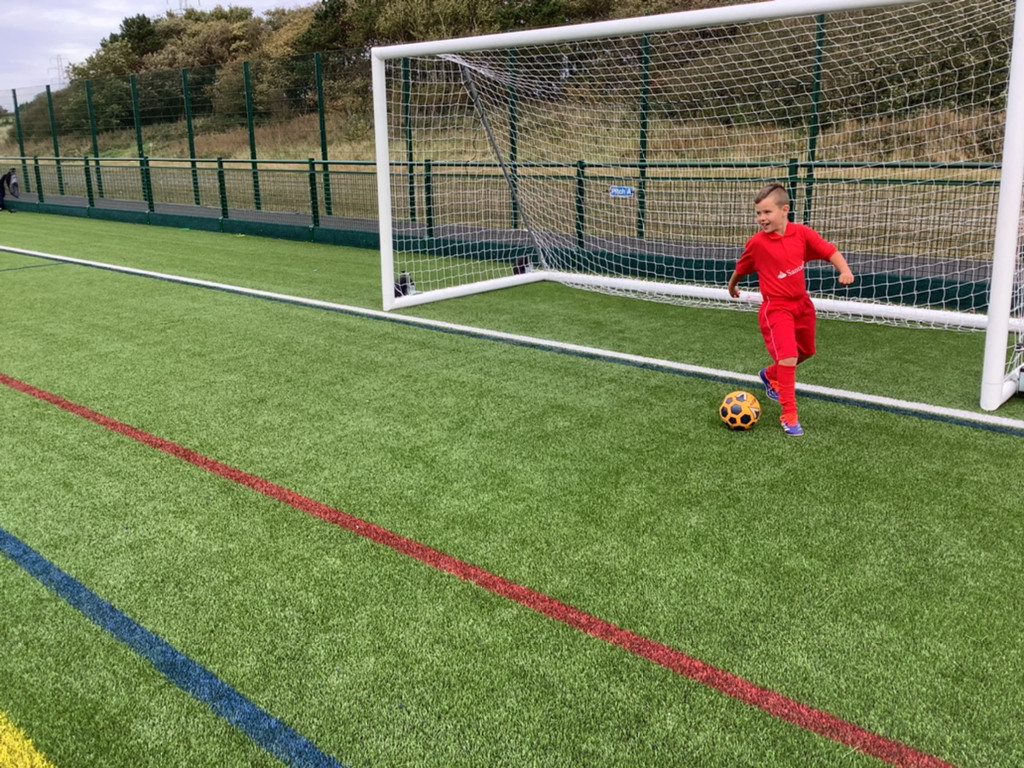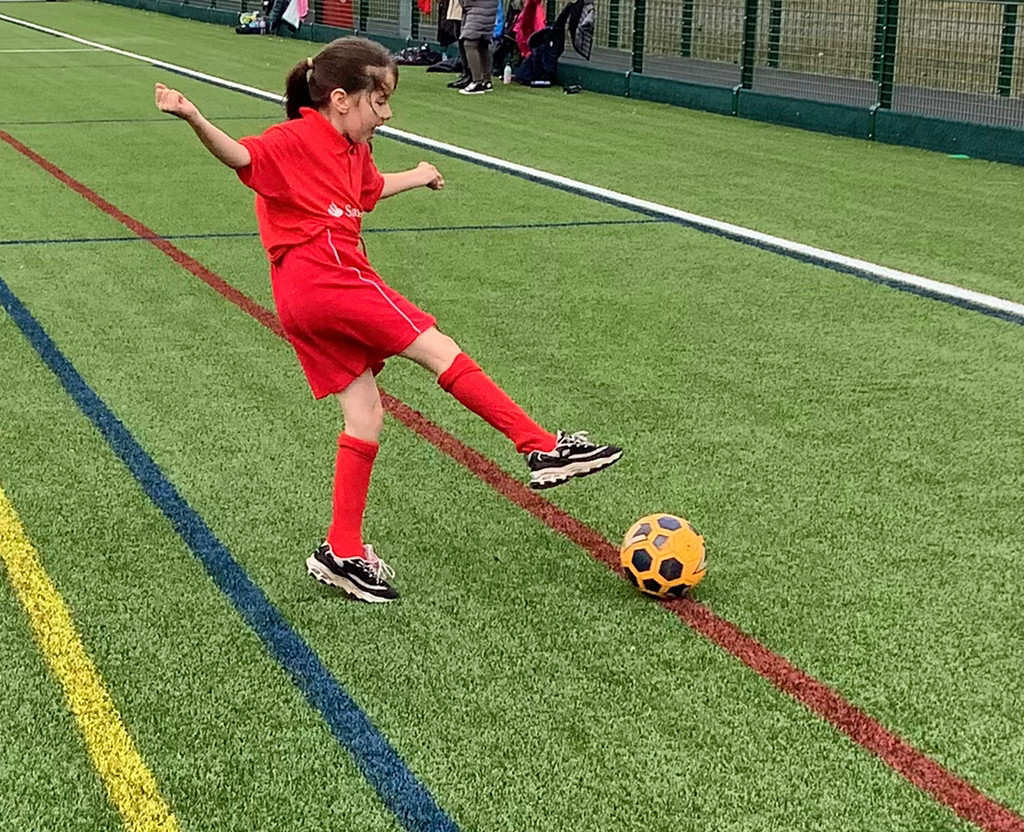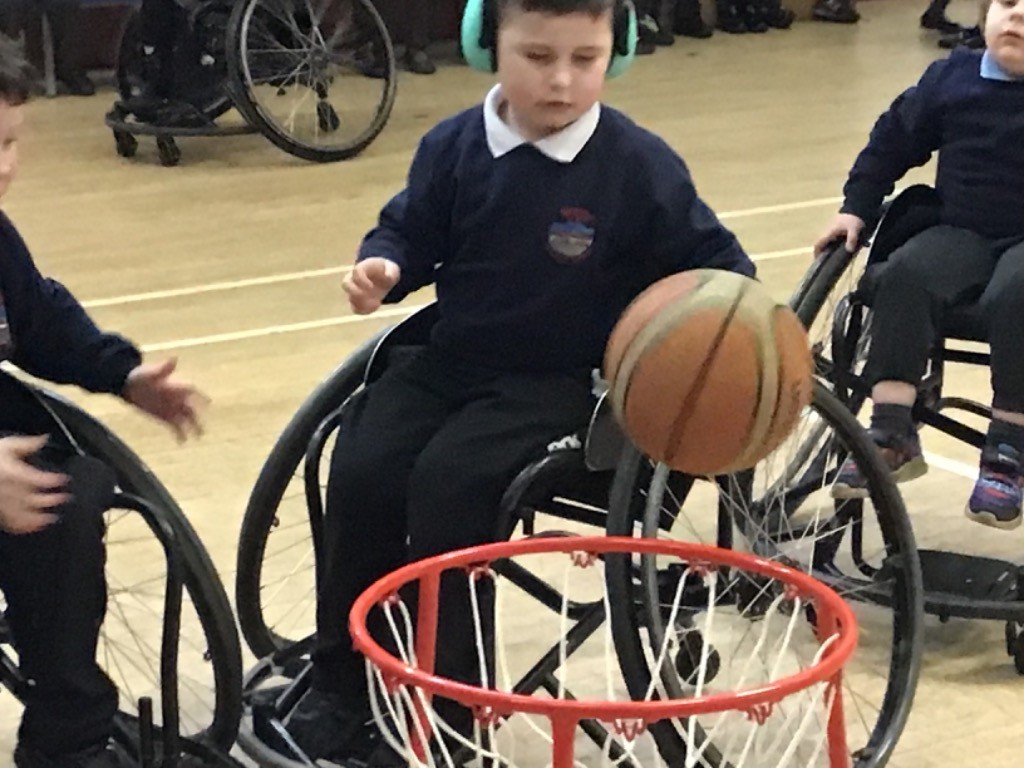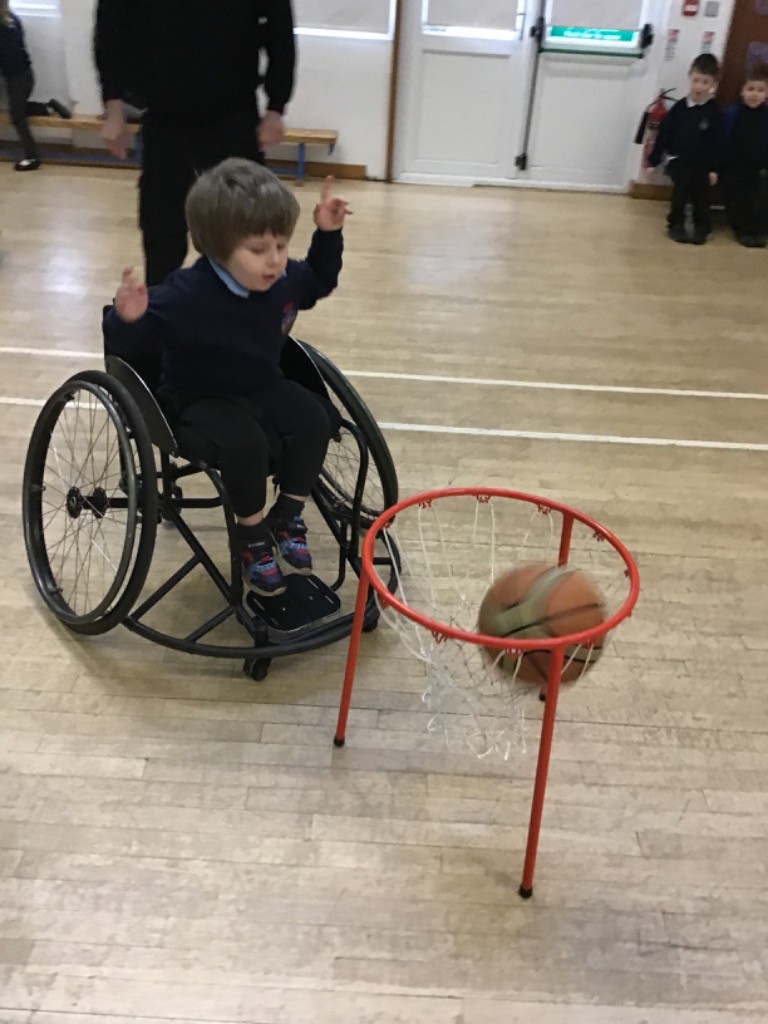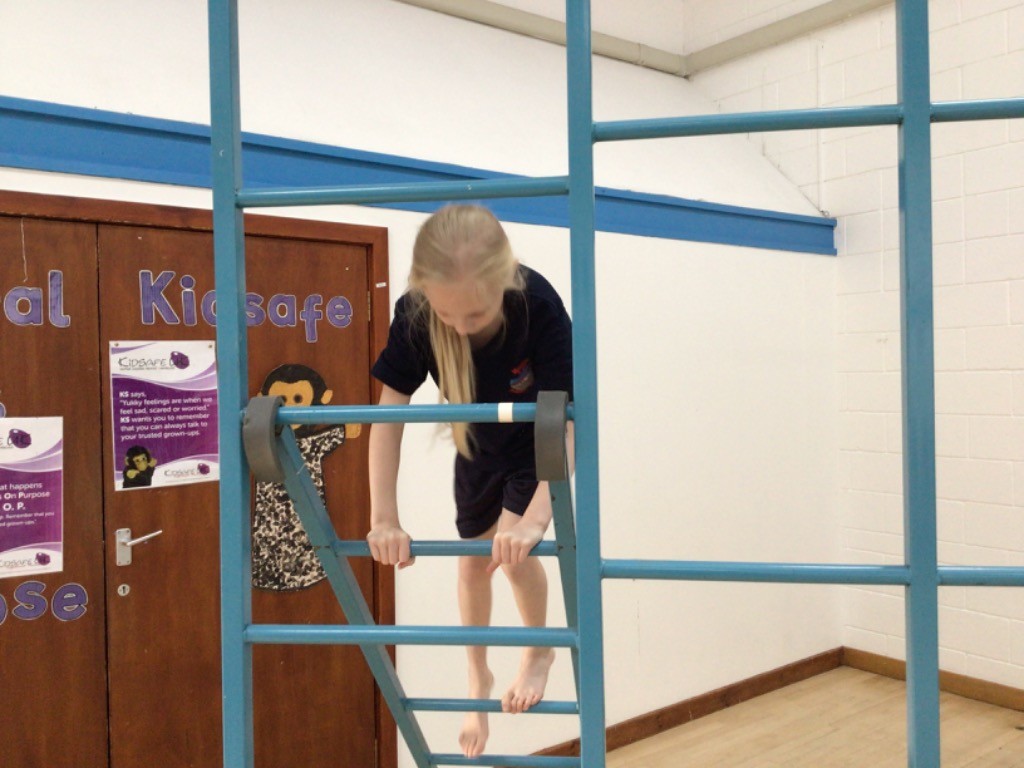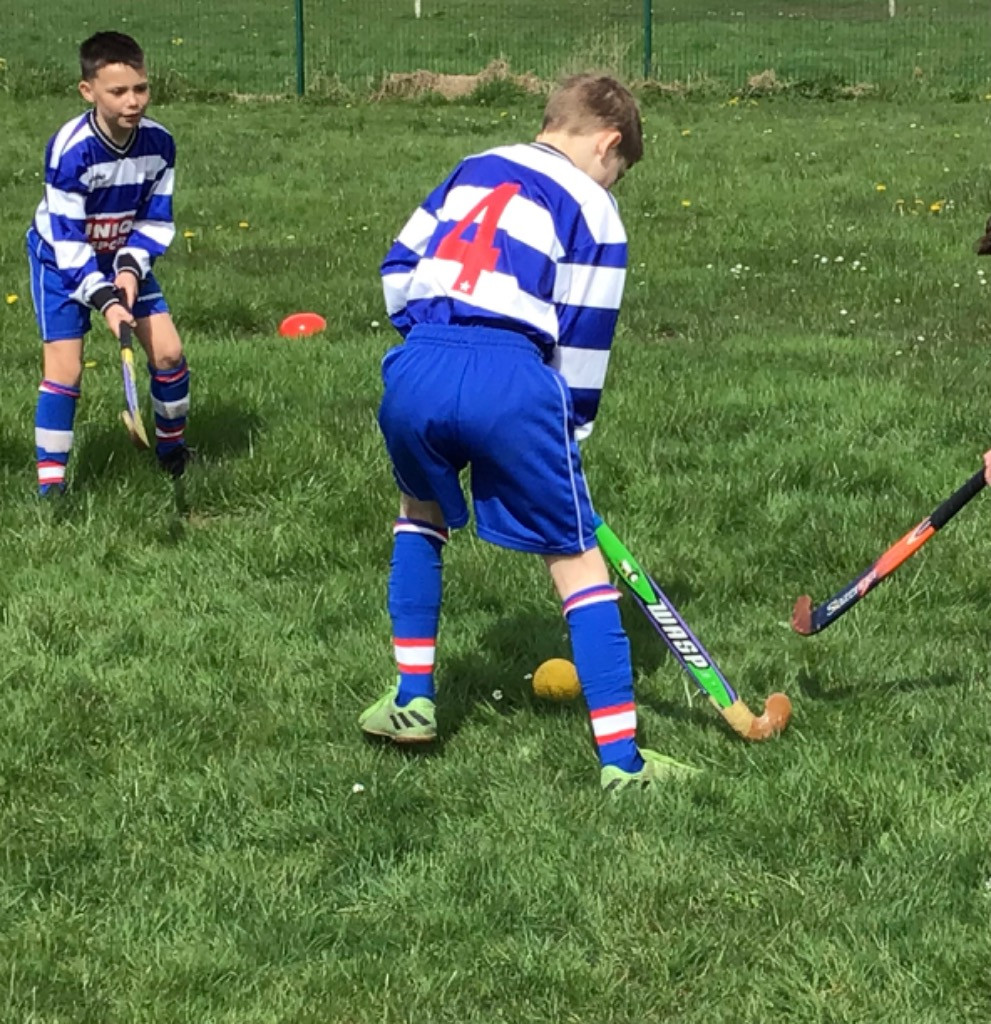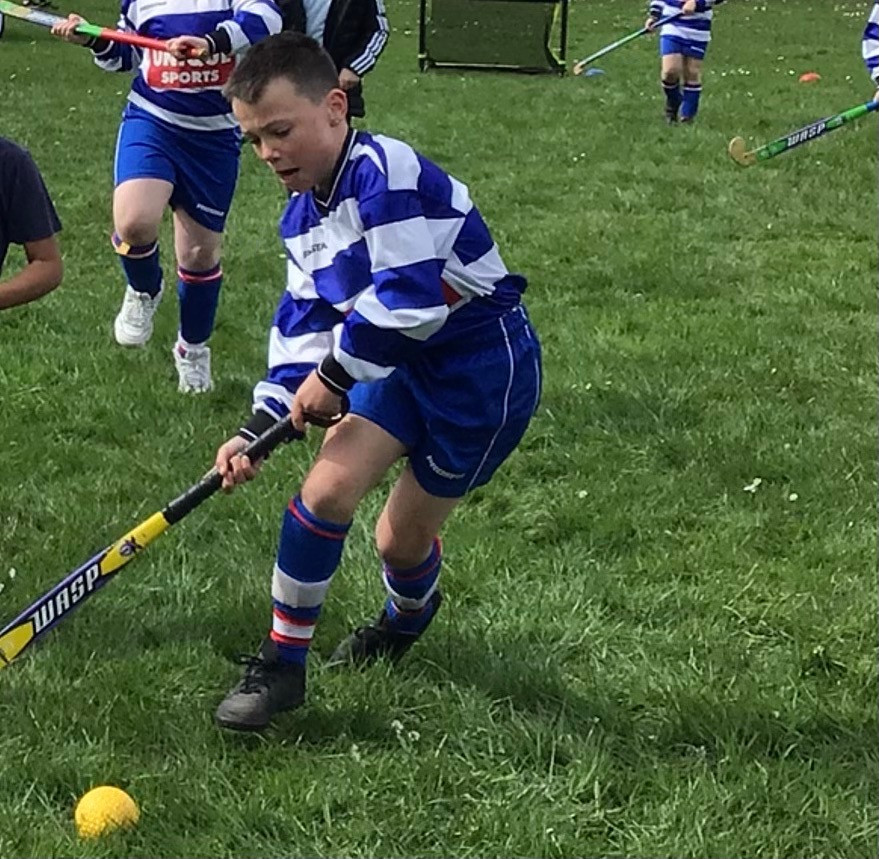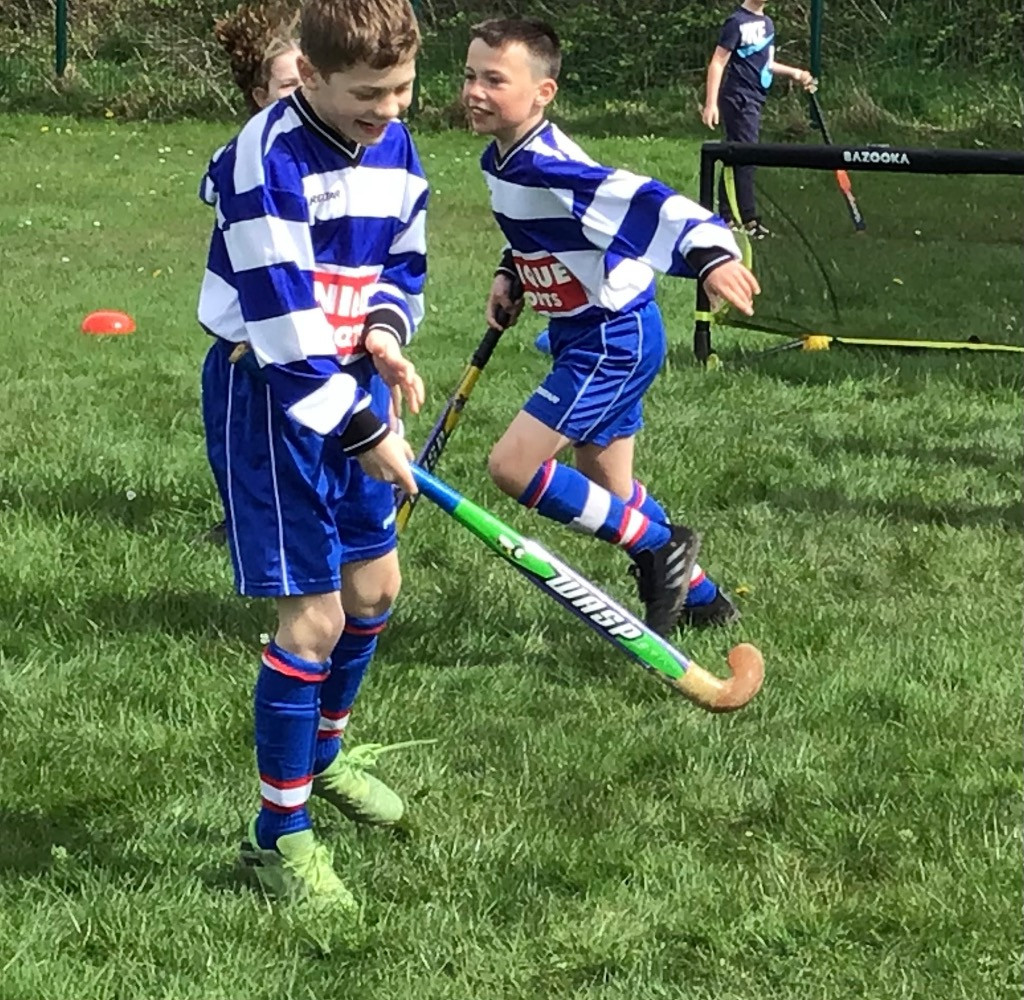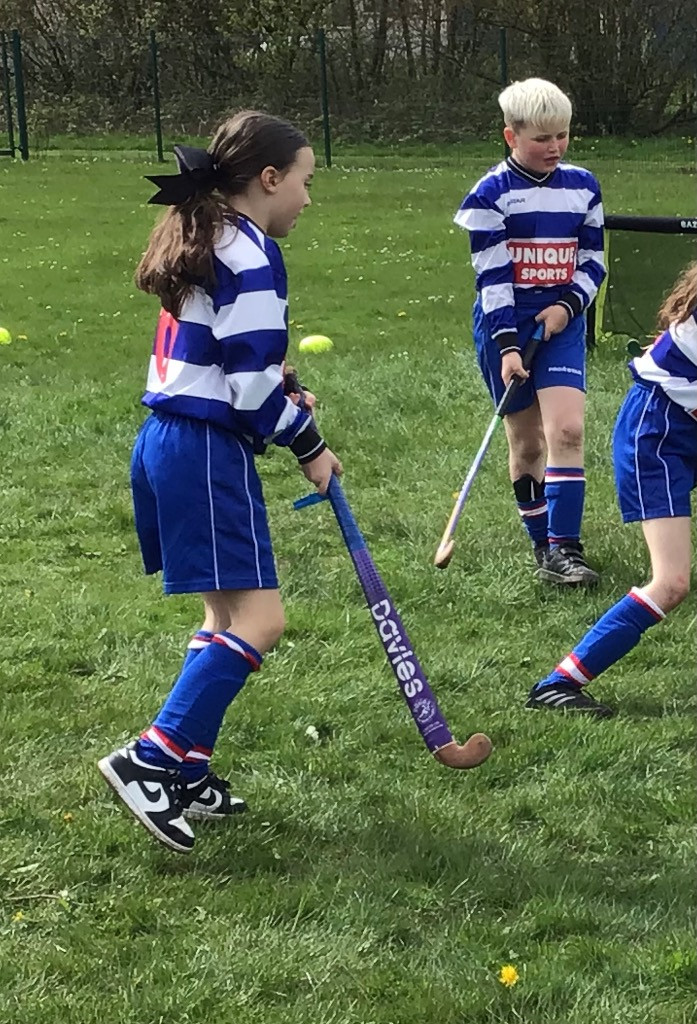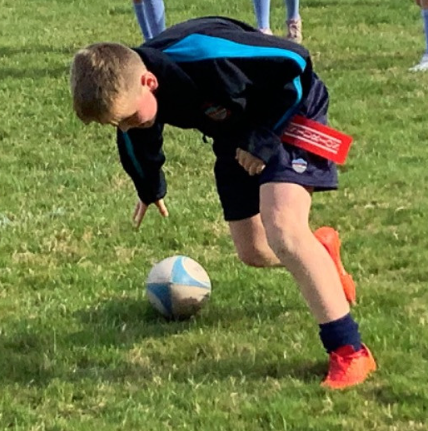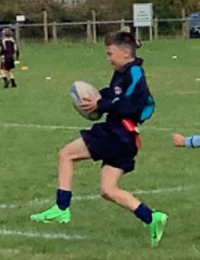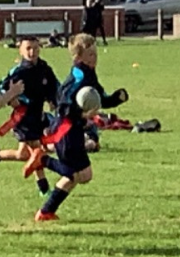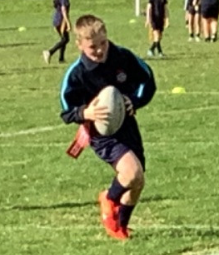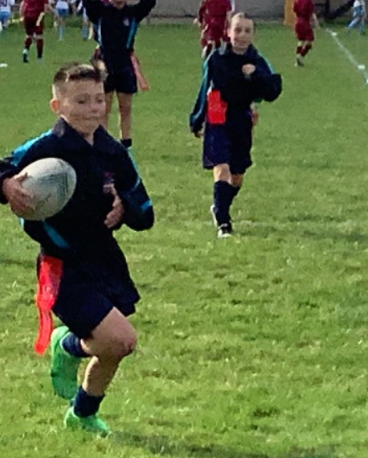If you would like to know more about the curriculum, please speak to the Class Teacher or arrange an appointment with Mrs L Vine, our curriculum lead via the office. office@montreal.cumbria.sch.uk
Our Curriculum Overview
Use the tabs below for more information about the Subject Areas taught in school...

Our Early Years Foundation Stage (EYFS) team prides itself on working closely with families to ensure the children in our Reception class receive the best care and experiences possible. Before children start our school, our staff liaise closely with parents/carers and feeder nurseries/childminders to ensure a smooth transition in to our setting.
We strongly believe that children have a right to experience a curriculum which is exciting, interesting and purposeful. We strive to develop learning through a stimulating, creative environment where all children have the opportunity to flourish.

Areas of Provision
Our carefully planned continuous provision enables children to learn new skills, explore recent learning and follow their own interests. This is done through active, hands on exploration and play based activities, both inside and out.
This provision is enhanced to make links to adult led learning, enabling children to embed learning and challenge their thinking. Adults based in the provision will support in building new skills, develop independence and model/extend speech and vocabulary. Enhancements also give the children opportunities to practise and improve skills, build engagement, motivation and critical thinking.

Curriculum
Our EYFS curriculum is based on The United Curriculum for Early Years Foundation Stage.
Our long-term plan is supported by more detailed half-termly plans which contain specific areas of focus followed by weekly plans.
We use a mixture of teaching styles including:
- Adults based within the provision
- Whole class teaching
- Group work
- Individual teaching & appropriate intervention groups to both support and challenge our pupils
In our class, subjects are sometimes taught in specific subject blocks, but learning is mainly organised in a cross-curricular way based on a variety of topics linked to our main topics, where learning and skills are revisited throughout the year to consolidate learning. Our sequence of learning is influenced by children's interests and key events throughout the year, for example Chinese New Year.

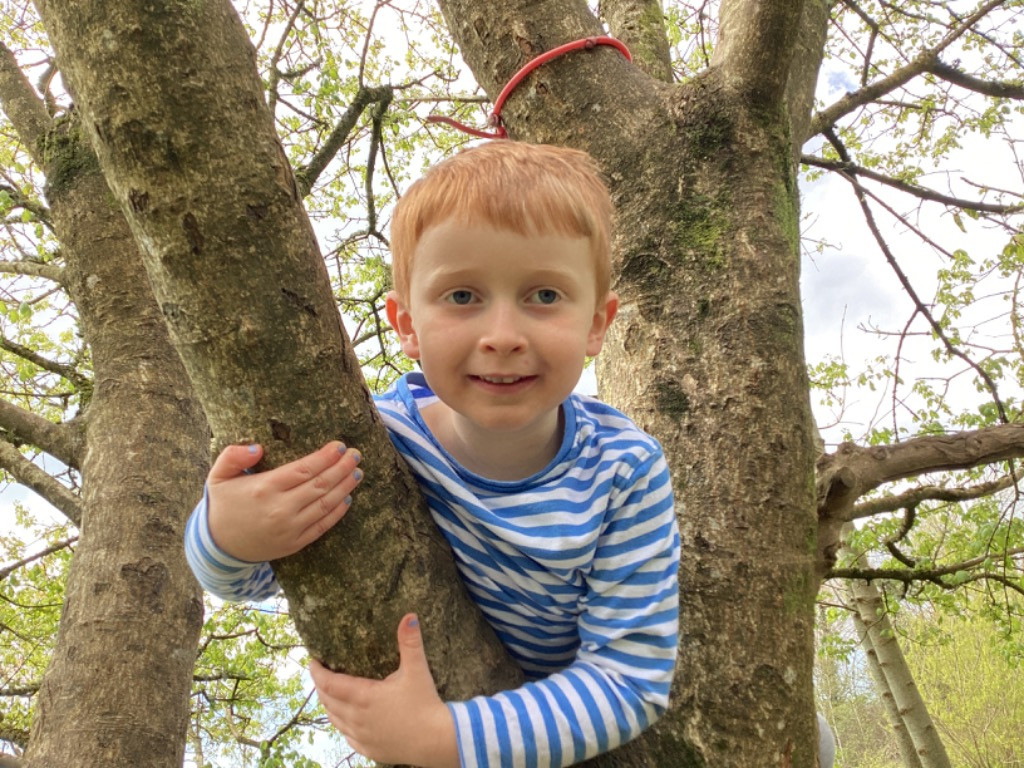



Characteristics of Effective Learning
The characteristics of effective learning are at the heart of how we learn in our EYFS class. They are the types of ways in which our children approach their learning through their decisions and interests. They also relate to how the children tackle new experiences and deal with challenges.
We have built a culture in which our children are motivated, curious, resilient learners who are not afraid to take risks. They show perseverance and resilience when it comes to tricky challenges, drawing on their own experiences and are always willing to have a go.
The characteristics of effective learning are as listed below:
- Playing and exploring
- Active learning
- Creating and thinking critically
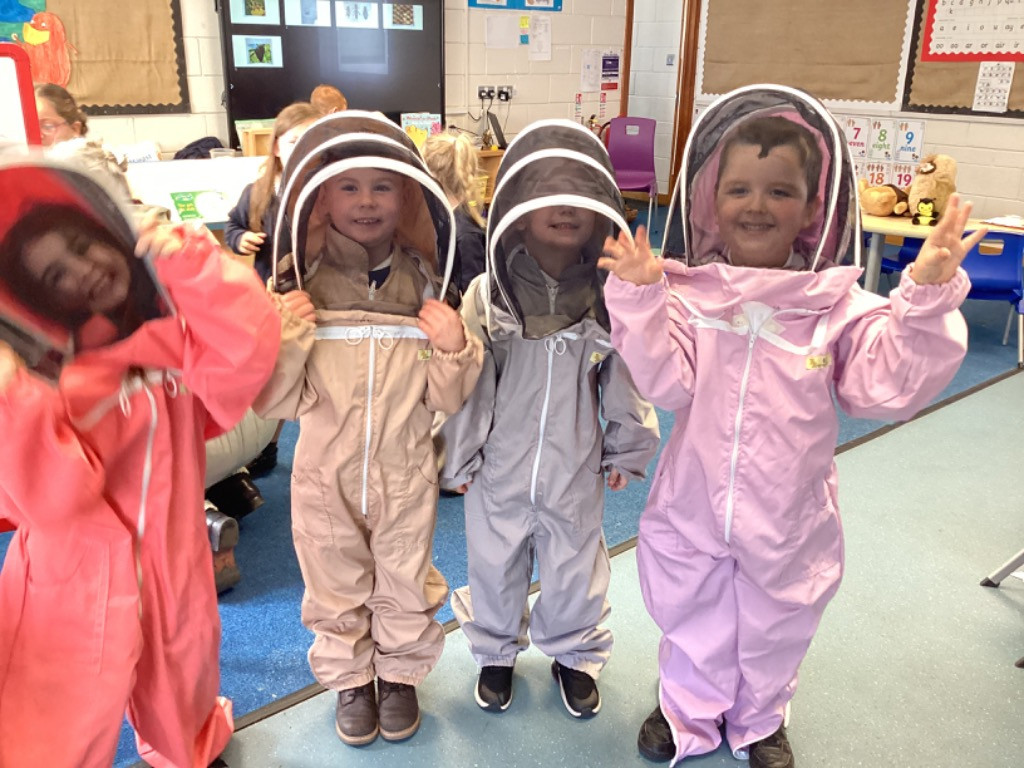
Outdoor Learning
At Montreal, we take part in an Outdoor Learning session every week. This goes alongside our free flow inside/outside provision. We believe in developing the 'whole child' and Outdoor Learning l sessions allow us to take learning out of the classroom and into the great outdoors. It gives children an opportunity to learn in a new way and within a new environment. Outdoor Learning allows children to take risks and attempt new challenges that they would not normally face within a classroom, adding a sense of excitement and adventure for the children, who are free to explore and manipulate the environment around them using all of their senses.
Our Outdoor Learning sessions support children in developing their imagination and creativity when carrying out activities. Children are free to let their imaginations run wild as they attempt problem solving and exploration of their surroundings. The sessions provide opportunities for the children to experience awe and wonder within the natural environment, allowing a spiritual connection with nature and enabling children to create space for their thoughts, feelings and intuition.
It is a privilege to see our children's motivation, communication, vocabulary and confidence grow as they explore our great outdoors, flourishing through hands on learning experiences.
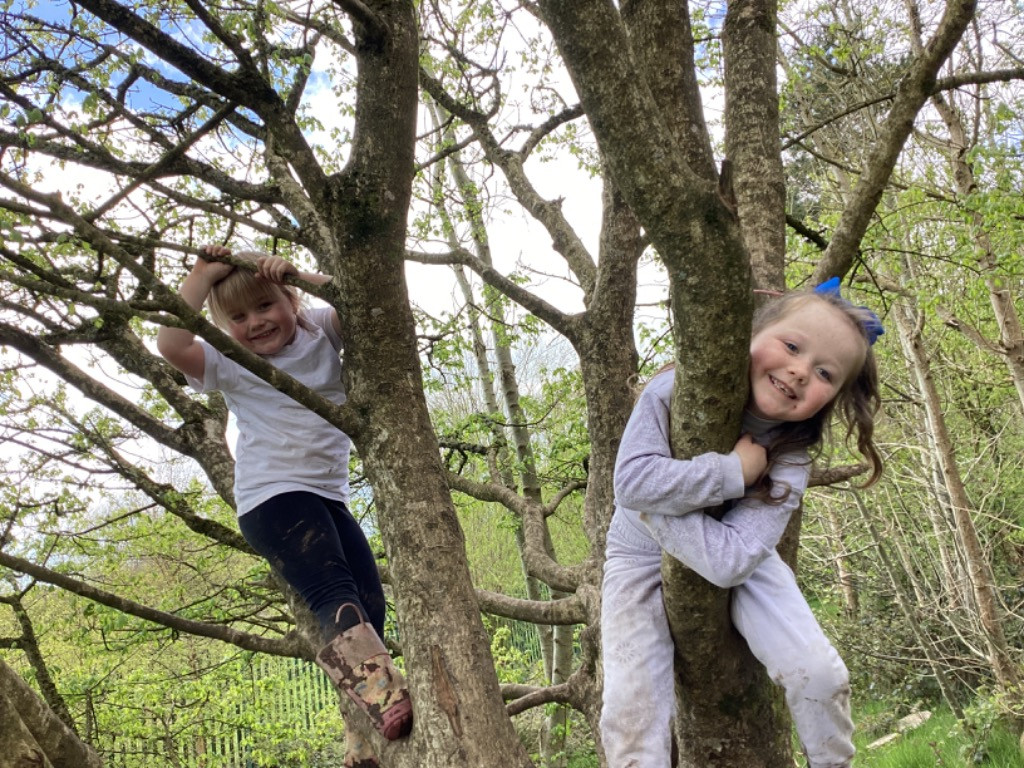
EYFS Policy
EYFS / Year 1 / Year 2 Long Term Plan

When teaching Mathematics, our pupils are taught through whole-class interactive teaching, enabling all to master the concepts necessary for the next part of the curriculum sequence.
At Montreal C of E Primary School, we strongly believe that every child can learn and enjoy Maths. We strive to spark curiosity and excitement and nurture confidence in Maths. We aim to develop deep and lasting understanding of mathematical procedures and concepts, through the use of small steps learning and exposing children to a range of resources and representations.
We promote the use of precise mathematical language throughout school to enable children to communicate their reasoning effectively. This is also displayed on our working walls to support mathematical discussion and learning.
The CPA (concrete, pictorial, abstract) approach underpins our love of bringing Maths to life and learning practically, giving learning a purpose and supporting children in exploring their ideas further.
At Montreal C of E Primary School, our Key Stage 1 and Key Stage 2 children study Mathematics daily following the Power Maths Scheme of Learning. Power Maths is built around a child‑centred lesson design that models and embeds a growth mindset approach to maths and focuses on helping all children to build a deep understanding of maths concepts. Every year group also takes part in Mastering Number sessions each day to build fluency and number sense.
Our EYFS children develop firm mathematical foundations in a way that is engaging, and appropriate for their age. We plan and deliver maths dependent on our cohort's interests and abilities, delivering adult led sessions planned carefully using the Mastering Number Programme, enhanced by Power Maths, White Rose and the NCETM. We use the small steps way of learning to build upon what the children already know, using manipulatives and representations to develop understanding.
We also integrate maths into different activities throughout the day – for example, at registration and snack time – to familiarise children with maths language and make the most of the school day. On top of this, we believe that the use of stories and songs/rhymes can be a powerful tool for engaging children with maths concepts. We also use games to support children in developing a firm understanding of numbers.
Power Maths Parent Letter
Mathematics Curriculum Overviews
The long-term plans below, which are taken from the Power Maths guidance, show which areas of Mathematics the children will be covering throughout the year.
Maths Calculation Policies

Our Vision
At Montreal C of E Primary School, we recognise the importance of nurturing a culture where children take pride in their writing and write clearly and accurately whilst selecting and adapting their language and style to suit a range of contexts, purposes and audiences. The overarching aim of English in the national curriculum is to promote high standards of language and literacy by equipping pupils with a strong command of the spoken and written word and to develop a love of literature through widespread reading for pleasure.
We plan engaging units of work in order to enthuse, inspire and motivate our children. Our chosen core texts are from a carefully developed reading spine. English equips pupils with a uniquely powerful set of tools to understand and engage with the world. These tools include the ability and confidence to communicate clearly and effectively using both spoken, and written words, to listen with understanding and to be responsive, knowledgeable readers. English is integral to all aspects of life and, with this in mind, we endeavour to ensure that children develop a positive and enthusiastic attitude towards all areas of English that will remain with them in order to achieve their full potential in life and make a valuable contribution to society.
Our Aims
By the end of KS2, we aim for our pupils to:
- Read with confidence, fluency and understanding.
- Love to read for information and for pleasure and read a wide range of books by different authors, including classic texts from our literary heritage, and to challenge themselves within their choices.
- Write clearly, accurately and coherently, adapting their language and style in and for a range of contexts, purposes and audiences.
- Understand a range of text types and genres – be able to write in a variety of styles and forms appropriate to the purpose.
- Understand how grammar and punctuation is used and applying this knowledge when reading and writing.
- Have an interest in words and their spelling and meanings, developing a growing vocabulary in spoken and written forms.
- Refine their writing with the use of a range of independent strategies to self-monitor and correct by being able to identify areas for improvements in all pieces of writing, editing their work effectively during and after the writing process.
- Present their written work in a clear, organised way, appropriate to the genre.
- Take pride in the presentation of their writing, including developing a neat, legible and fluent cursive handwriting style.
- Have a suitable, age appropriate technical vocabulary to articulate their responses.
- Be able to listen attentively with understanding and be able to express their views clearly in a range of situations such as discussions, presentations and debates.
- Develop their powers of imagination, inventiveness and critical awareness.
- Practise, consolidate and develop English skills across the curriculum.
Our Curriculum
Reading and writing are closely linked and taught through a selection of rich, core texts.
Reading
At the heart of our curriculum, we aim to foster a deep love of reading and a passion to explore a wide range of vocabulary and stories. Through enjoying literature, our children develop efficient skills, which equip them for the next stage of their lives. At Montreal CofE Primary School, we use the CUSP curriculum. The CUSP literature spine is broad, rich and agile. Its core purpose is to expose pupils to a range of high-quality literature that gives every child a mirror in which to see themselves and offers a window to children to see a world beyond their own. This has also been reflected within the supporting texts and the thematic mapping is designed to communicate where specific moral, social and ethical issues are indicated or addressed.

Reading in Key Stage One and Two:
All classes take part in regular reading activities. All children are involved in whole class reading to ensure that everyone in the class has exposure to age appropriate texts, including contemporary picture books, contemporary novels, heritage texts, seminal authors/poets, modern and classic poetry and non-narrative texts covering a wide range of topical themes. Teachers carefully choose a variety of medium to teach reading, including newspaper articles, video clips, extracts from novels etc., covering a breadth of topics. The texts are carefully selected to ensure children will be appropriately challenged with the level of vocabulary and to ensure that they are relevant to topics, current world events and the interests of the children. Teaching and learning is centred on developing the core skills of retrieval, vocabulary, inference, prediction, sequence and summary.
Children are encouraged to choose reading books from their classroom library to read independently for pleasure at a level appropriate to their reading ability and to further develop their knowledge of different authors. The school use Accelerated Reader to assess reading ability and to quiz children on the books they have read. Once children become confident and fluent readers, they are able to have free choice from the classroom library and are encouraged to read a wide range of books by different authors. Children will also take part in a session of guided reading focusing on non-fiction and encourage the development of spoken language. All classes have daily story time with a class text at the end of each day.
Writing
The aim of CUSP Writing is to provide teachers with the tools to explicitly teach pupils the knowledge and competencies that they need about the different facets of writing and the writing process. Through a foundation of reading, children develop into competent, skilful writers who can write for a variety of purposes and audiences, sparking interest and engaging the reader. Writing is taught discreetly in daily English lessons but many opportunities to put these skills into practice are provided across the curriculum. For example, children may write a diary entry from the point of view of a Biblical character in an R.E. lesson, a non-chronological report about a country in a geography lesson, an explanation text in science etc.
Composition
Composition refers to writing for a specific purpose and audience. From KS1, children are taught to master the writing style of differing text types – beginning with Narrative and Instructional writing and progressing throughout KS2 to include Explanatory texts, News Reports, Biography, Autobiography Playscripts (including an introduction to Shakespeare), Poetry (including an introduction to Shakespeare’s sonnets) and onto more complex genres e.g. persuasive and discursive writing. Examples of model texts are used to display effective features and techniques to the children.
Cross-curricular writing opportunities provide an engaging and purposeful stimulus for children. They are encouraged to develop resilience throughout the writing process. Within a writing sequence, the children learn to embed language and form. They learn about the structure and organisation of a variety of text types. Extended opportunities for discussion of writing, e.g. role play, pair talk and oral rehearsal are used to prepare children for the writing process. Shared writing provides an opportunity for the teacher to demonstrate and model writing including the thought processes that are required. The editing and redrafting process, which all writers require, is an integral part of the sequence. Teachers are explicit when teaching genre features as well as grammar and punctuation rules within the context of writing. Children are given opportunities to discuss, verbalise and refine ideas. The success criteria is developed through the teaching sequence as the children explore the effect they want their writing to have on the reader.
Grammar and Punctuation
Grammar and punctuation is taught and put into practice through the genres of writing. Teaching and learning is linked to the specific features of the text type being studied to make it purposeful with the intended writing outcome. Specific knowledge and skills are explicitly taught in standalone lessons to embed and develop children’s understanding or to consolidate skills. Teachers use their knowledge of the children to identify areas that need more study. These will be completed as connect tasks at the start of the literacy sessions.
Spelling
Each year group is taught a specific set of spelling concepts which have been mapped out in accordance to the National Curriculum and designed to ensure progression of knowledge and skills. Spellings are explicitly taught in discreet spelling lessons, reinforced throughout the week and assessed on an ongoing basis so that any gaps can be quickly identified and addressed. Children regularly use a dictionary and thesaurus to support their understanding of spelling concepts and to extend their repertoire of vocabulary. Children will regularly study the common exception words for their year group and these will feed into their weekly adapted spellings. Children that take part in phonics sessions will focus on spellings based on what they have been learning that week.
Handwriting
At Montreal, children are taught to develop a neat, legible style of handwriting using a cursive script. In Reception, the children will use Moving to Write where the focus is on correct pencil grip, letter formation and size. In Years 1-6, handwriting lessons are delivered through Letter Join. At Montreal, we aim to instil the children with a sense of pride and ownership over their work and as such using a neat, legible handwriting style is reinforced across the curriculum.

Spoken Language
Spoken language underpins the development of reading and writing. The quality and variety of language that pupils hear and speak are vital for developing their vocabulary and grammar and their understanding for reading and writing. Our teaching will ensure that out pupils continually develop their confidence and competence in spoken language and listening skills. We will encourage them to develop their ability to explain their understanding of what they have read and to prepare their ideas before writing.
Enrichment
English at Montreal C of E Primary School, is enriched through a wide range of opportunities both in and out of school. The Library Van visits once a term, giving children the opportunity to exchange library books to refresh the range of books in their class library. Each class receives a termly ‘Topic Box’ from the library to provide additional reading to support other curriculum areas. The children are able to access up to 1000 online books using MyOn. Every year, we take part in World Book day, fun and varied activities are planned to develop a love of reading and to celebrate our rich literary heritage. Year 6 take part in ‘Play-in-Day’ each year where they familiarise themselves with a Shakespeare Play then rehearse and perform it to the whole school at the end of the day. Once a year, the whole school will have an extended writing morning when something exciting that has happened in school will be the main focus of their writing. The children also learn a poem by heart and perform it to the class the winner from each class will then go on to perform it to the rest of the school. To promote reading at Montreal, children are encouraged to ‘Strive for Five’ each week where reading with an adult out of school for a minimum of five times a week is recognised and celebrated.

The following documents are curriculum overviews for reading and writing for this year.
Writing curriculum overview
Reading curriculum overview
To access our Accelerated Reading please scan the QR code below.




Learning to read is the most important thing your child will learn at our school. Everything else depends on it, so we put as much energy as we possibly can into making sure that every single child in our school learns to read as quickly as possible. We want your child to love reading - and want to read for themselves. This is why we put our efforts into making sure they develop a love of books as well as learning to read.
We start to teach phonics to our children as they join us in our Reception class. They learn how to 'read' the sounds in words and how those sounds can be written down. This is crucial not only for reading but it also supports them in learning to spell.
Our children will also practise reading 'red words'. These are tricky words such as 'you', 'said' and 'there'.
The children practise their reading with books that match the phonics and the 'red words' they know.
At Montreal C of E Primary School, we believe reading to children is so important. Time is dedicated every day for children to enjoy story time within their classes. The children are exposed to a range of text types such as stories, poetry and information books. This helps to build vocabulary and support their writing.
Read Write Inc Phonics
At Montreal Church of England Primary School we use the resources from the Read Write Inc scheme for teaching phonics.
We start teaching Read Write Inc Phonics in our Early Years Foundation Stage and then continue until the children have worked their way through the programme, usually this is during Year Two.
In EYFS, children will be taught how to read and write all of the sounds in Set 1 and Set 2. They will then be taught how to blend the sounds together in to worlds. Fred the Frog helps the children to blend the sounds together to read while words. Teachers use the phrase 'Fred Talk' to sound out words.
We assess all children on the scheme every half term, to ensure that they are placed in the correct group for their reading ability. This also allows us to quickly identify any children who may need some extra support. We provide one to one tutoring for these children to support them in keeping up with their peers.
All of our Phonics teachers have been trained to deliver the programme effectively.
Children begin by learning Set 1 sounds:
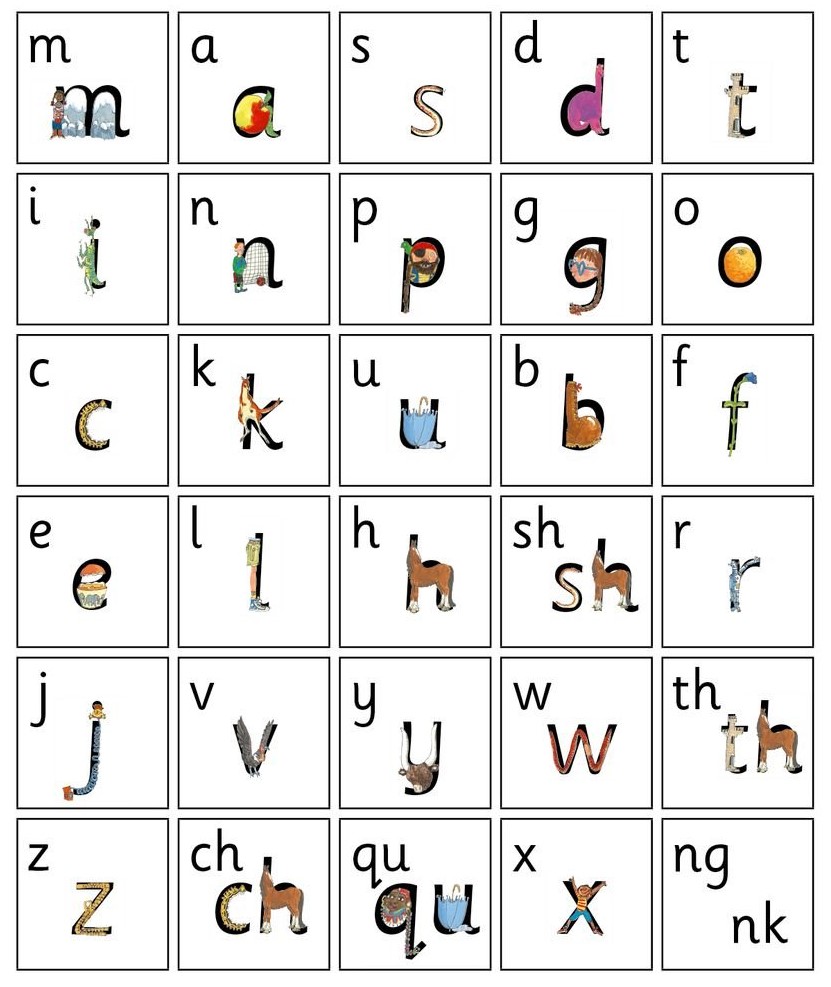
They also begin to learn to blend sounds together to read words.
Once children can read words, they move on to reading stories within their Phonics sessions.
Once your child knows all of the Set 1 sounds speedily, recognising them within a word to read the full word, we move on to teaching Set 2 and 3 sounds:
.png)
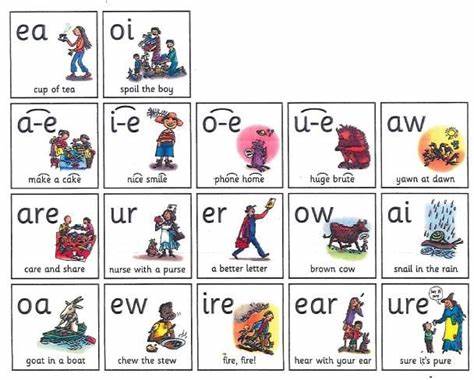
Children will learn that most vowel sounds have more than one spelling. There are 12 Set 2 sounds that are made up of two or three letters which represent just one sound e.g. ay as in spray and igh as in bright.
Children will also be taught that there are more ways in which the same sounds are written e.g. ay as in day and a-e as in cake.
As the children move through the phonics scheme, they will develop into fluent, confident readers who are passionate about reading.
Children will bring home phonics books closely matched with their phonics knowledge. The children will have read these books within school and are bringing them home to share their reading success with you each week.
Phonics - Parent Information
Books to read online - Free eBook library | Oxford Owl from Oxford University Press
Supporting Phonics at home - Phonics - Oxford Owl for Home
Phonics games - PhonicsPlay - Resources



Our Vision
At Montreal, we encourage our pupils to be curious and innovative within Science lessons but also throughout the curriculum. The science curriculum fosters a healthy curiosity in children about our universe and promotes respect for the living and non-living things. We believe science encompasses the acquisition of knowledge, concepts, skills and positive attitudes. Throughout the programmes of study, the children will acquire and develop the key knowledge that has been identified within each unit and across each year group, as well as the application of scientific skills. We ensure that the Working Scientifically skills are built-on and developed throughout children’s time at school so that they can apply their knowledge of science when using equipment, conducting experiments, building arguments and explaining concepts confidently and continue to ask questions and be curious about their surroundings.
Our Aims
- To develop scientific knowledge and vocabulary, and to use it within the correct context
- Provide our pupils with innovative and positive experiences of science, in and outside of the classroom
- To develop conceptual understanding through the specific disciplines of biology, chemistry and physics
- To help understand of the nature, processes and methods of science through different types of science enquiries
- To help them to ask and answer scientific questions about the world around them
- To use a range of scientific equipment/resources to their practical skills when working scientifically
- To ensure that our pupils are equipped with the scientific knowledge required to understand the uses and implications of science, today and for the future
- To teach and develop the six types of enquiry approaches that children may use to find out answers to investigable questions: 1. comparative / fair testing, 2. research, 3. observation over time, 4. pattern seeking, 5. identifying, grouping and classifying, 6. problem solving
- To encourage pupils to build on their natural curiosity and develop a scientific approach to problem solving
- We will encourage our pupils to read, spell and pronounce scientific vocabulary correctly.

Early Years
In Early Years, our pupils will follow the curriculum as set out in Early Years Foundation Stage curriculum. We will encourage the children begin making sense of the world and their community by giving them opportunities to explore, observe and find out about people, places, technology and the environment around them.

Key Stage 1
In Key Stage 1, the National Curriculum states that the principal focus of science is to enable pupils to experience and observe phenomena, looking more closely at the natural and humanly constructed world around them. As part of our Science teaching, we will encourage the children to be curious and ask questions about what they notice. We will help the children to develop their understanding of scientific ideas by using different types of scientific enquiry to answer their own questions, including observing changes over a period of time, noticing patterns, grouping and classifying things, carrying out simple comparative tests, and finding things out using secondary sources of information. We will model how to use simple scientific language, to talk about what they have found out and communicate their ideas to a range of audiences in a variety of ways, and we will encourage the children to begin using it in their own learning. We will ensure that the children have lots of first-hand practical experiences alongside opportunities to use appropriate secondary sources, such as books, photographs and videos.
We will encourage our pupils to read and spell scientific vocabulary at a level consistent with their increasing word-reading and spelling knowledge at Key Stage 1.
Key Stage 2
As children enter Key Stage 2 the National Curriculum states that the principal focus of science teaching in lower key stage 2 is to enable pupils to broaden their scientific view of the world around them. We will provide opportunities for them to achieve this by exploring, talking about, testing and developing ideas about everyday phenomena and the relationships between living things and familiar environments, and by beginning to develop their ideas about functions, relationships and interactions. We will encourage the children to ask their own questions about what they observe and to make some decisions about which types of scientific enquiry are likely to be the best ways of answering them, including observing changes over time, noticing patterns, grouping and classifying things, carrying out simple comparative and fair tests and finding things out using secondary sources of information. As part of our Science lessons we will encourage the children to draw simple conclusions and to use some scientific language, first, to talk about and, later, to write about what they have found out.
The National Curriculum states that the principal focus of science teaching in upper Key Stage 2 is to enable pupils to develop a deeper understanding of a wide range of scientific ideas. We will provide opportunities for them to do this through exploring and talking about their ideas; asking their own questions about scientific phenomena; and analysing functions, relationships and interactions more systematically. At upper Key Stage 2, they should encounter more abstract ideas and begin to recognise how these ideas help them to understand and predict how the world operates. We will support them to understand and recognise that scientific ideas change and develop over time. We will encourage our children to select the most appropriate ways to answer science questions using different types of scientific enquiry, including observing changes over different periods of time, noticing patterns, grouping and classifying things, carrying out comparative and fair tests and finding things out using a wide range of secondary sources of information. We will help our pupils to draw conclusions based on their data and observations, use evidence to justify their ideas, and use their scientific knowledge and understanding to explain their findings.

Enrichment
Our Science curriculum is enhanced with a range of different experiences for our pupils, such as our annual Science Week which is a ten-day celebration of science, technology, engineering and Maths. As a school, teachers use the United Science Curriculum/resources within their lessons, to develop pupil’s vocabulary, knowledge and scientific enquiry. We have a range of inspiring visitors and experts who work in STEM occupations who come and work with our pupils, such as Pet Encounters, The National Trust and Primary Business Partnership. Our Key Stage Two pupils enjoy The Science REACT shows where we collaborate with other local schools to learn about exciting Science topics. Our pupils have also had the opportunity to visit local and national museums and facilities such as The Beacon, Whitehaven, Muncaster Castle, Ravenglass and The Natural History Museum, Oxford. Each week our pupils have a Forest School session where they can develop their scientific skills outdoors as well as learn about topics such as Plants, Living things and their Habitats, Animals inc Humans and Rocks.
Science Risk Assessment

Our Vision
At Montreal, PSHE is taught through the SCARF (safety, caring, achievement, resilience, friendship) scheme. SCARF's whole-school approach supports primary schools in promoting positive behaviour, mental health, wellbeing, resilience and achievement. We believe that PSHE is much more than a stand-alone lesson, it is interlinked throughout the curriculum and school vision. Teaching our children PSHE along with RE, PE, Kidsafe and Decider Skills we are confident we are teaching our children skills and building the foundations to be happy, healthy and confident young people. We strive to ensure all children understand what is healthy, physically and mentally. We teach them skills to make choices, speak confidently in a safe environment and build resilience to support them into adulthood. We enrich the curriculum as much as possible with trips, workshops and visitors.
Our Aims
- For children to have a secure understanding of what is healthy, both physically and mentally.
- For children to speak confidently and be confident in making choices.
- To build resilience and independence.
- For children to add a positive contribution to their community and the wider society.
Early Years
In Early years our pupils will be introduced to the PSHE Curriculum through the PSHE scheme, SCARF. The programme will cover six themes: Me and My Relationships, Valuing Differences, Keeping Myself Safe, Rights and Responsibilities, Being My Best and Growing and Changing. Our pupils follow the curriculum as set out in Early Years Foundation Stage curriculum. Personal, Social Emotional Development, Physical Development and Understanding the World interlinks with the PSHE Curriculum where the children will experience wider learning opportunities to build their knowledge and understanding.
Key Stage 1
In Key Stage 1, each unit will build upon previous learning. Me and My Relationships unit will build upon the children’s previous work as they begin to identify groups of people who could help them within the community rather than individuals. They will begin to explore the meaning of friendship and how friends show that they care for each other. In valuing difference, they will extend their previous learning on kindness by being introduced to the term bullying. They will explore physical and non-physical differences between people and explore strategies to help deal with common relationship difficulties. To develop their knowledge of keeping themselves safe they will begin to explore what their bodies need to stay healthy and explore safe and unsafe situations and how they could deal with these situations. Their work on rights and responsibilities develop as they reflect not only upon the importance of keeping their own things safe but thing also objects which are important to other people. They will explore why it is important to save money but they will also look at the difference between buying essential and non-essential items. They will reflect upon how to look after the school environment. As part of their work in being my best the children will explore the importance of eating fruit and vegetables when trying to stay healthy and explore different hygiene routines to follow when aiming to keep themselves safe. As part of their work on growing and changing they will continue to explore the correct names for different body parts and how to meet the basic needs of a baby. They will then explore the different stages of growth that the human body goes through.
Key Stage 2
As children enter Key Stage 2, the children will continue to follow SCARFs six units of work. The Growing and Changing unit will cover the statutory requirements for the Relationships and Sex Education curriculum. The children’s work in Me and My Relationships will build upon the children’s previous work as they begin to explore why we have rules and the qualities of friendships. What a positive, healthy relationship is and how to say ‘no’ to a friend when they don’t want to do something. They will explore what makes a relationship healthy or unhealthy and how conflicts can be resolved when they occur. Peer influence and pressure and the right to choose who you marry. In valuing difference they will begin to explore the different types of families that exist within communities and how to value similarities and differences between people in the same community. How to manage conflict when it occurs in their relationships. What makes a friendship last and they will develop an understanding of discrimination and its injustice. The meaning of prejudice and the importance of living in a diverse society. To develop their knowledge of keeping themselves safe they will begin to explore current advice about smoking and alcohol and how to keep themselves safe online. How that medicines are drugs and to develop their awareness of rules which encourage safe use of medicines. Ways of keeping themselves safe online and how humans can meet their own basic needs. As part of their work on rights and responsibilities they will explore the role of volunteers and why people want to be volunteers. They will consider why people save up to buy items. The role of bystanders and strategies to follow if they find they are a bystander. Difference between facts and opinions and the difference between voluntary, community and pressure groups. The pay they could receive if they did a particular job and they will revisit the importance of saving. As part of their work in being my best, the children will explore how to make sure that they have a balanced diet and how to keep their bodies healthy. How they can help their local environment and how to keep themselves safe by assessing the level of risk. In growing and changing, they will be taught that babies come from the joining of an egg and sperm and that periods are a normal part of puberty for girls. Why puberty happens and the key facts of the menstrual cycle. How they would feel if they were separated from someone they care about. The changes that happen through puberty to allow sexual reproduction to occur and they will know a variety of ways in which the sperm can fertilise the egg to create a baby. They will begin to use the correct names for the sexual organs.
Useful links for Parents & Carers to support your child
Helping your children understand changes at puberty
PSHE Curriculum Overview


History
Our Vision
In our History curriculum we are passionate about stimulating the children’s interest and understanding about the life of people who lived in the past. We aim for the children to develop a sense of chronology, identity and a cultural understanding based on their historical heritage. We teach children to understand how events in the past have influenced our lives today; we also teach the children to investigate these past events and, by so doing, develop the skills of sequencing, enquiry, analysis, interpretation and problem solving.
Our Aims
-
To promote an interest in the past
-
To develop an understanding of events over time and in a chronological structure
-
To learn about the roles that individuals and events have played in shaping modern society
-
To develop an ability to investigate and interpret different versions of past events
-
To learn to study historical sources as evidence and to ask and answer questions about the past
-
To develop the ability to communicate historical knowledge and understanding using a variety of techniques
-
To encourage children to understand other people, their beliefs, thoughts, values and experiences
-
To develop an awareness of the world around them
-
To develop an understanding of society and their place within it, so that they acquire a sense of their cultural heritage
-
To develop an understanding of how our local area has changed over time whilst considering similarities and differences
-
To develop a knowledge and understanding of historical development in the wider world
Our Curriculum
The key historical concepts will be introduced throughout the year including coherent and chronological substantive knowledge of the history of Britain and the wider world, selected to build pupils’ understanding of three vertical concepts. These vertical concepts provide both a concrete lens through which to study and contextualise history, as well as use small steps to help pupils gain a deep understanding of complex, abstract ideas:
Quest for knowledge
How do people understand the world around them? What is believed; what is known; what scientific and technological developments are made at the time? How is knowledge stored and shared? What shapes people’s views about the world?
Power, empire and democracy
Who holds power, and what does this mean for different people in the civilisations? How is power wielded and legitimised? How are people’s rights different in different historical contexts?
Community and family
What is life like for people in different societies? How are these societies structured? How are family and community roles and relationships different in different historical contexts?
Opportunities for all pupils to see themselves reflected in the curriculum, but also to be taken beyond their own experiences. The history curriculum teaches pupils about civilisations from across the world, and always incorporates the experiences – positive and negative – of ethnic minorities in the history of Britain.
Grounding in core disciplinary and procedural knowledge, and the ability to approach challenging, historically-valid questions, giving pupils the opportunity to learn how to think, read and write like an historian.
An excitement for history, which inspires a curiosity to learn more about the past.

The United Curriculum for History has three strands:
Substantive Knowledge
By substantive knowledge we mean the core historical facts of a particular period or topic, for example key dates, individuals or events specific to a unit.
Disciplinary Knowledge
Disciplinary knowledge refers to how historians carry out their discipline in order to maintain and add to the subject’s canon. Pupils learn what it means to be an historian.
Vertical Concepts
Vertical concepts are the more abstract ideas or threads that build gradually and with increasing depth across the multiple contexts encountered by pupils as they move through our curriculum. In history we use three broad categories:
- Power, Empire and Democracy
- Quest for Knowledge
- Community and Family

In the EYFS, storytelling and sequencing activities begin to build pupils’ understanding of narrative and pupils are encouraged to ask and answer questions about the world around them. Children talk about past and present events in their own lives and in the lives of family members. This lays a secure foundation for the development of historical skills in later key stages.
Key Stage One
In KS1, pupils study the more recent past, looking at the themes of homes through times and how their local area, Egremont and Whitehaven, have changed over time. Significant people, events and places from the more distant past are also studied, including the Great Fire of London and pupils start to ask and answer questions about the past by looking at written sources, pictures and objects and explore similarities and differences between the present and the past. We will develop their skills of historical enquiry by helping them to understand some of the ways in which we find out about the past and identify different ways in which it is represented. We will teach them about our rich local history.

Key Stage Two
During Key Stage Two, we will teach our pupils to develop a chronologically secure knowledge-based understanding of British, local and world history, establishing clear narratives within and across the periods they study. We will enable them to develop the skills to make connections, contrasts and trends over time and to develop the appropriate use of historical terms using knowledge organisers and images. We will encourage the children to ask questions about change, cause, similarity and difference, and significance. Our children will be taught to recognise that the past is represented by a wide variety of sources and we aim to help them to understand the reliability of these sources and the significance of them in our own lives today. From the building of Stonehenge in Prehistoric Britain, through the Egyptians, Romans, Greeks, Vikings and the Mayan Civilisation, pupils are taken on a journey of historical enquiry and investigation.

Enrichment
Our teaching of history is enriched with artefact boxes from the local library. Visits to places of historical significance, both locally and further afield, including the local war memorial, the Beacon and Tullie House in KS2. Trips out in our local area including the Rum Story in Whitehaven are hugely popular and foster curiosity and a love of history.

The following document shows the curriculum overview for History.

Our vision
Geography is essentially about understanding the world we live in. It provides a means of exploring, appreciating and understanding the world in which we live and how it has evolved. Geography explores the relationship between the Earth and its people.
Our aim when teaching geography is to inspire in children a curiosity and fascination about the world and people within it; to promote the children’s interest and understanding of diverse places, people, resources and natural and human environments and to embed a deep understanding of the earth’s key physical and human processes also providing a greater understanding of their own local environment.
Geography encourages children to learn through experience particularly through fieldwork and practical activities. This includes learning about our unique geographical location.

Our Aims
- Inspire in pupils a curiosity and fascination about the world and its people that will remain with them for the rest of their lives.
- Equip pupils with knowledge about diverse places, people, resources and natural and human environments, together with a deep understanding of the Earth’s key physical and human processes.
- Develop a growing knowledge about the world to deepen their understanding of the interaction between physical and human processes, and of the formation and use of landscapes and environments.
- Acquire Geographical knowledge, understanding and skills.
- Enable children to learn and explain how the Earth’s features at different scales are shaped, interconnected and change over time.
The United Curriculum for Geography has three strands:
Substantive Knowledge (Conceptual and Procedural)
In the United Curriculum for Geography, we have categorised substantive knowledge into two types:
- Conceptual
- Procedural
By conceptual knowledge, we mean the core geographical facts of a particular unit, for example, that biomes are large ecosystems that contain specific species of organisms.
Procedural knowledge refers to the skills of being a geographer, such as how to use different types of maps or interpret and construct graphs.
Disciplinary Knowledge
Disciplinary knowledge refers to how geographers carry out their discipline and the thought processes required to do so. In the United Curriculum, disciplinary knowledge has been organised to cover:
- Enquiry & Fieldwork
- Making Comparisons
- Interconnections
- Forming Judgements
Vertical Concepts
Vertical concepts are the more abstract ideas or threads that build gradually and with increasing depth across the multiple contexts encountered by pupils as they move through our curriculum.

Our curriculum
Early Years
Our pupils in Nursery and Reception will follow the curriculum as set out in Early Years Foundation Stage curriculum. We will encourage the children to begin making sense of the world and their community by giving them opportunities to explore, observe and find out about people, places, technology and the environment around them.
Key Stage One
During Key Stage One we will enable our pupils to develop knowledge about the world, the United Kingdom and their locality. We will ensure that they understand basic subject-specific vocabulary relating to human and physical geography and begin to use geographical skills, including first-hand observation, to enhance their locational awareness. This will include exploring the use of aerial photographs, maps, atlases and globes to locate places and the use of compass directions when giving directions.
Key Stage Two
During Key Stage Two, our pupils will extend their knowledge and understanding beyond our local area to include the United Kingdom and Europe, North and South America. We will explore the location and characteristics of a range of the world’s most significant human and physical features. We will support the children to develop their use of geographical knowledge, understanding and skills to enhance their locational and place knowledge. We will continue to develop the children’s geographical skills by continuing to use maps, atlases, globes and digital/computer mapping to locate countries and to describe the features. The children will begin to recognise the positions on an eight-point compass, they will be able to use four and six-figure grid references and identify lines of longitude and latitude. They will use their fieldwork skills to make observations and measurements in the local area using a range of methods.
Enrichment
Our teaching of Geography is enriched by a wide range of opportunities to visit to places of geographical significance in our local area. As well as studying our nearest fell, we also will have the chance to walk up it with the whole school. Our unique position in the heart of West Cumbria means our KS2 children are able to study and compare a range of mountains and lakes in the local area. They also enjoy learning about our rugged coastline at St Bees. Our KS1 children explore the changes on our local high street in Cleator Moor and the features of the historical harbour in Whitehaven. The children have weekly forest school sessions that enable them to be outside of the classroom and in nature. By enriching our children's geographical experiences, they are well placed to develop a strong understanding of the physical and human features around them and their place in the world.

Please find below the Geography curriculum overview for this year

Our Vision
At Montreal, we believe that learning a foreign language provides an opening to other cultures. For our pupils. When teaching French we wish to develop pupils’ curiosity and deepen their understanding of the world. Our teaching enables our pupils to express their ideas and thoughts in another language and to understand and respond to its speakers, both in speech and in writing. In our lessons we provide opportunities for children in Years 3-6 to communicate for practical purposes, learn new ways of thinking.
Our Aims
- To understand and respond to spoken and written language from a variety of sources.
- To encourage to speak with increasing confidence, fluency and spontaneity
- To find ways of communicating in French, thinking about what they want to say, including through discussion and asking questions
- To continually improve their accuracy of their pronunciation and intonation
- To write at varying length, for different purposes and audiences, using the variety of grammatical structures that they have learnt
- To discover and develop an appreciation of the language studied


Key Stage 2
In Key Stage Two, we will introduce our pupils to French with the focus on enabling them to make substantial progress in one language. We aim to achieve an appropriate balance between teaching the children the spoken language and the written language. We aim to ensure that by teaching our pupils French we are helping them to understand and communicate ideas, facts and feelings in speech and writing in another language.
When teaching our pupils French we will encourage them to listen to conversations and to join in conversations responding appropriately. The children will be encouraged to ask and answer questions and to express their own opinions. We will encourage our pupils to read and show their understanding of simple phrases written in French. We will ensure that the children have opportunities to listen to stories, songs poems and rhymes in French. We will support our pupils to ensure that they can write phrases from memory, and adapt these to create new sentences, to express ideas clearly.
Enrichment
Our MFL curriculum is enhanced by:
- Using/adapting the ‘Language Angels’ resources for our French lessons
- Celebrating Bastille Day as a whole school, introducing Key Stage One to the history of the celebration
- Working alongside local secondary schools and academies on how they teach French within their schools
MFL Curriculum Overview

Our Vision
At Montreal our vision is for children to recognise the importance of a healthy lifestyle, have fun and enjoy a range of sporting activities, build new friendships, build resilience, understand the importance of respect, aspire to improve and set goals. All children take part in a minimum of 2 hours per week, this maybe a PE lesson, Outdoor activities, Daily Mile and more. We work alongside a professional sport coach, who delivers specific sequences of sports lessons aimed at different year groups and key stages throughout the year. Where teachers are delivering their own PE lessons, they use GetSet4PE scheme of work. We take part in the School Games competitions, the School Games aim to put physical activity and school sport at the heart of schools, and provide young people with the opportunity to enjoy and learn through competition to achieve their personal best. Our children have lots of sporting events to engage with throughout the year. This year we will be attending events such as Hockey, Cricket, Tag Rugby, Multi Sports and Swimming lesson.
Our Aims
- To lead healthy and active lives
- To engage in competitive sports and activities
- To learn to develop self-control and manage emotions
- To experience being part of a team and understand your contribution to it
Early Years
In Early Years we teach physical education by linking skills and activities to the objectives set out in the Development Matters and Birth to 5 Matters Physical Development is promoted using the indoor and outdoor provision, it is given lots of focus in the Early Years as it builds the foundations for other skills such as writing and attention.
Key Stage 1
In Key Stage 1 the children start each morning with a physical activity such as dancing. Throughout the year children will build skills and knowledge to master basic movements including running, jumping, throwing and catching, as well as developing balance, agility and co-ordination, they will begin to apply these in a range of activities, participate in team games, developing simple tactics for attacking and defending, perform dances, using simple movement patterns.
Key Stage 2
As children enter Key Stage 2 they will use running, jumping, throwing and catching in isolation and in combination. Play competitive games, modified where appropriate for example, badminton, basketball, cricket, football, hockey, netball, rounders and tennis, and apply basic principles suitable for attacking and defending. Our pupils will develop flexibility, strength, technique, control and balance for example, through athletics and gymnastics. They will perform dances using a range of movement patterns, take part in outdoor and adventurous activity challenges both individually and within a team within our Forest School sessions. And they will also compare their performance with previous ones and demonstrate improvement to achieve their personal best. During the summer term Year 5 & 6 have a two week block of swimming which are taught by specialist swimming instructors who assess the children at the start and end of the swimming course.
Enrichment
Our PE curriculum is enhanced with events throughout the year for children of all ages and all abilities to take part in. Events to look forward to this year; School Games events, U dance, wheelchair basketball, wheelchair rugby, annual sports day, cricket coaching, residential visits and weekly after school clubs
PE Curriculum Overview

Our Vision
At Montreal Church of England Primary School, the teachings of the Christian faith are the foundations of everything we do and are embedded throughout all aspects of school life. We strive to nurture the whole child, their mind, body and spirit, whilst supporting the relationships our children build with themselves, others, the world around them and God. Our intention is to encourage and support loving, nurturing and inclusive citizens, able to succeed in life and make an active contribution to the world.
Religious Education gives children a sense of belonging, community, identity and purpose. Teaching about the diversity of people and cultures around the world helps our children understand the world around them and supports them to flourish in a quickly changing world. We prepare children for citizenship in today’s diverse society, building sensitivity and respect. At Montreal Church of England Primary School, we understand the importance of building citizens of tomorrow, knowing our teachings and our values of Love, Hope and Respect are crucial in helping our children grow into free thinking, passionate, aware young adults.
We thrive on hope, mutual respect, and the love of our friends in the school community and beyond. Our community is at the heart of our school; we value all individuals and celebrate our diversity within a safe and welcoming family. Together ‘We are Montreal’, working together to make a positive impact on our world.
RE is recognised as a core subject. Christianity should be taught throughout each Key Stage and it is expected that by the end of Key Stage Two our pupils will have an accurate understanding of other world faiths and religions as well as non-faith religious views.
Our Aims
Through RE, we aim to develop critical thinkers through real, relevant, meaningful experiences. We understand the importance of learning from and about religion, supporting children in acquiring and developing knowledge and understanding of Christianity and the other principal religions represented in Great Britain. We know that quality RE teaching has the potential to have a powerful impact on children’s hearts and minds, developing sensitivity and respect for others.
We believe in providing children with a range of experiences through an enquiry-based curriculum, developing their ability to make reasoned and informed judgements about world-wide issues which will enhance their spiritual, moral, social and cultural development.
The Cumbria Agreed Syllabus states:- ‘the aims of RE are to enable young people to:
• Know about and understand a range of religious and non-religious worldviews by learning to see these through theological, philosophical and human science lenses.
• Express ideas and insights about the nature, significance and impact of religious and non-religious worldviews through a disciplinary approach.
• Gain and deploy skills rooted in theology, philosophy and the human sciences, engaging critically with religious and non-religious worldviews.
• Be able to reflect on personal worldviews
Our pupils are encouraged to explore how religious and non-religious worldviews relate to each other and to recognise diversity within personal and organised worldviews. Pupils reflect on the significance of interfaith dialogue, understanding the importance of combatting prejudice and discrimination, demonstrating inclusivity and acceptance within their everyday lives.
Our Curriculum Scheme - ‘Questful RE’
Through the use of the 'Questful RE' scheme of learning, we are sending our children on a quest to discover aspects of people’s lives. As a Voluntary Controlled school, we teach a 60/40 balance of Christianity and other World Faiths.
The Questful Scheme of Learning teaches that our children are the hearts and minds to shape society today and that in the future they will grow into open, accepting, curious, empathetic, self-aware young adults. 'Questful RE' offers our children the opportunity to dive deeper into their religious learning and understanding.
'Questful RE' is a balanced curriculum using 3 approaches:
- Theology (believing, text)
- Human and Social Sciences (living, impact)
- Philosophy (thinking, connection)
Early Years
Our pupils in Reception follow the curriculum as set out in the Early Years Foundation Stage Curriculum. We encourage children to begin making sense of the world and their community by giving them opportunities to explore, observe and find out about people, places, technology and the environment around them.
Key Stage 1
In Key Stage One, we encourage our pupils to develop their knowledge and understanding of Christianity and Islam. They are guided to study these religions through local, national and global contexts.
We model subject specific vocabulary and encourage children to use this language in their work. We encourage our pupils to ask questions about things which puzzle them and to use their knowledge and understanding, to begin expressing their own views in response to the questions posed to them.
In Key Stage One, we listen to a range of religious and moral stories and encourage children to reflect upon their meanings. Children are encouraged to identify how people from different religions and groups show how they belong to these groups. We encourage our children to think about how they would respond in different everyday situations and to think about and discuss the appropriate response/s.
Key Stage 2
Throughout Key Stage Two, we ensure our children continue to extend their knowledge and understanding of different religions and worldviews. Our children build upon the study of Christianity and Islam whilst progressing to find out about other world faiths and religions in a local, national and global context throughout KS2.
We encourage our children to ask increasingly challenging questions about religion and beliefs, and develop subject specific vocabulary. When looking at sources of information, we encourage our pupils to express their own ideas in response to the material that they are given. Children are encouraged to give reasons to support their ideas.
Throughout Key Stage Two, we encourage children to make connections between different religions studied and stories they read. We investigate how communities show their commitment to faiths and beliefs and how diverse communities live together to ensure the well-being of all.
Parents / Carers
Parents have a legal right in accordance with the Education Act 1996 to withdraw their children from RE lessons. As a Church of England School we ask parents to discuss with the Headteacher their reasons for requesting this. We aim to provide an RE curriculum which can be sensitively and appropriately taught to all children, by all staff and would hope to work together to provide suitable activities / experiences. Parents must submit a written request to the Headteacher should they wish to withdraw their child from RE lessons.
RE Policies and Curriculum Documents

Our Vision
At Montreal, we aspire to provide our children with a rich and varied music curriculum. We believe that music plays an integral role in helping children to feel part of a community, therefore we provide opportunities for all children to create, play, perform and enjoy music both in class, assemblies and to the wider community, We aspire for our children to develop a curiosity for a range of musical styles and an appreciation for music from various time periods, cultures and countries. Children will leave Montreal Primary school with a wide range of musical skills, self-confidence and a love and passion for music.
Our Aims
- To provide children with a high-quality, progressive curriculum which is inclusive for all
- To provide children with tuned and untuned musical instruments
- To provide children with opportunities to share their musical talent with others
- For children to explore a range of diverse musicians
- For children to develop an awareness and understanding of wider opportunities in Music
Our Curriculum
Early Years
In Early Years, Our children will interact, communicate and express their feelings through music. They will explore and make sounds with their bodies, voices and a range a musical instruments. They will play aloud for others and take part in musical performances and will talk about music they have listened to or created.
Key Stage 1
In Key Stage 1, children will learn a range of songs from a variety of backgrounds off by heart and will learn how they can enjoy moving to music by dancing, marching, being animals or popstars. In each unit, they will explore a range of progressive warm up games and challenges that embed pulse, rhythm and pitch. They will learn to sing in high and low pitches and how to make different types of sounds with their voices. They will be able to name a variety of instruments and will begin to explore different musical notes.
Key Stage 2
As children enter Key Stage 2, the children will continue to learn how to sing and play a range of songs from different time periods, cultures and countries. They will identify the style of the songs and will make comparisons to previously taught music. Children will identify some of the style indicators of the music, use the lyrics to explain what the song is about, identify musical dimensions and where they are used (texture, dynamics, tempo, rhythm and pitch), identify the main sections of the songs (intro, verse, chorus etc.), name the instruments that they heard in the song and understand the cultural context of the song. They will share their thoughts and feelings on the music and will use musical vocabulary when discussing the songs. They will compose, improvise and perform to an audience.
Enrichment
Our music curriculum is enhanced with lots of musical opportunities for children to build on their skills, strengthen their passion for music and the promote music as a potential career opportunity. Children are given opportunities and enjoy live musical performances including watching a musical on the residential trip, pantomime visits, church visits and visits from local musicians. Children have a variety of opportunities to perform to an audience both in school and outside of school. For example by participating in the U-DANCE Festival, school choir, nativity and KS2 Summer Performance.
Music Curriculum Overview
Music Development Plan

Our Vision
At Montreal, we believe that all children should have access to a high-quality, inclusive and progressive art curriculum which engages, inspires and challenges. Our curriculum embraces children's natural curiosity, opening their minds to new ideas and concepts. We promote a love of outdoor learning in art, and children develop their observational skills, taking inspiration from the world around them. They will further their knowledge of art in other cultures by exploring the works of artists, designers and craft makers from diverse backgrounds. Children will explore how Art has shaped history and how it continues to contribute to society and culture.
Art aids children's physical, intellectual, social, emotional, cultural and spiritual development. We want our children to use art as a tool to express themselves creatively and enhance their personal growth and development.
Our children take great pride in their artwork; therefore, Montreal strives to promote success and provides children with lots of opportunities to share their art with their peers, families and the local community including the parish.
Our Aims
- To provide children with a high-quality, progressive curriculum which is inclusive for all
- To provide children with a wide range of tools and materials to create their own artwork
- To provide children with opportunities to share their work within the local community
- For children to explore a range of artists, designers and craft makers
- For children to develop an awareness and understanding of wider opportunities in art.
Our Curriculum
In Early Years, the children are provided with regular opportunities to express themselves creatively. They will explore and play with a variety of tools and materials. They will begin to develop techniques and experiment with colour, design, texture, form and function. Art will provide children with various opportunities to develop their fine motor skills such as using a range of small tools including scissors and paintbrushes. Children in Early Years will begin to show accuracy and care when drawing and will be able to talk about their creations.
Key Stage 1
In Key Stage 1, children experiment with a wide range of materials, creating their own artwork. Using their own experiences and imagination, they will express themselves creatively. They will work artistically, exploring and developing their skills and techniques in using colour, pattern, texture, line, shape, form and space. The children will learn about various artists, craft makers and designers.
Key Stage 2
As children enter Key Stage 2, they will improve their mastery of techniques. They will gain more control of their art, focusing on the finer details of their creations. Children will experiment with form and structure, manipulating a range of materials to create a desired effect. The children will be taught about great artists, architects and designers in history. Children will have opportunities to share their art in the local area, learn from local artists and will have an understanding of where art can take them in the future.
Enrichment
Our Art curriculum is enhanced with extra creative opportunities for children to promote a love of art and further develop their skills. This includes creating art on a theme such as remembrance day, Christmas, and Easter. Children’s art is displayed around school, in windows, and in local galleries such as our parish halls for the community to enjoy.
Scan the QR code to view all of the entries for this terms 'wildlife photography competition'!

Photo Galleries:
Our Vision
At Montreal, we want Design and Technology to be an inspiring, rigorous and practical subject for our pupils. Using creativity and imagination, our children learn how to design and make products, solve real and relevant problems within a variety of contexts, considering their own and others’ needs, wants and values. They will also use a broad range of subject knowledge and skills from subjects such as mathematics, science, engineering, computing and art. Pupils learn how to become resourceful, innovative and enterprise. Through the evaluation of past and present design and technology, they develop a critical understanding of its impact on daily life and the wider world.
Our Aims
- To develop the creative, technical, and practical expertise needed to perform everyday tasks
- To participate successfully in an increasingly technological world
- To understand and develop their skills in order to design and make high-quality prototypes and products for a wide range of users
- To evaluate and test their ideas and products and the work of others
- To understand the importance of nutrition and learn how to cook
Early Years
In Early Years, our pupils will follow the curriculum as set out in Early Years Foundation Stage curriculum. During their time in Reception, we will ensure that the children have the opportunity to explore and play with a range of media and materials. The children will encouraged and given opportunities to share their thoughts, ideas and feelings through a variety of designing and making activities. They will also learn how to keep themselves healthy and basic cooking skills which they will then develop in Key Stage One.


Key Stage 1
During Key Stage One, through creative and practical activities, our pupils will be taught the knowledge, understanding and skills needed for designing and making. They should work in a range of relevant contexts for example, the home and school, gardens and playgrounds, the local community. At Montreal, we will support our pupils to design purposeful products for themselves and others. They will be given opportunity to use a range of materials and tools sensibly when making products. After making products we will help our pupils to evaluate the products that they have created. During Key Stage One, our pupils will develop their knowledge of structures and mechanisms and test how strong their products are.


Key Stage 2
In Key Stage Two, they will develop their skills and knowledge learnt in Key Stage One. We will provide opportunities for our pupils to work with a wider range of tools and materials when designing and making products. Our pupils to evaluate their ideas and products against their own design criteria and consider the views of others to improve their work. Our pupils will be given the opportunity to explore how to strengthen, stiffen and reinforce more complex structures, explore mechanical systems, understand and use electrical systems in their products and to apply their knowledge of computing systems will be provided.
Enrichment
Our D&T curriculum is enhanced by:
- Working alongside different projects such as ‘The Growing Well Project’, ‘Phunky Foods’ and the ‘Primary Business Partnership’.
- Using/adapting the ‘United’ Curriculum for our D&T lessons
- Working with the ‘Sellafield Centre of Excellence’, where the children have been given the opportunity to develop their skills in mechanics and structures.
- Key Stage Two children work with ‘Resolve Engineers Solutions’ and go to Oxford to present their work to other schools and D&T experts in the UK.
- Joining together with ‘Bright Stars’ to learn and develop their product making skills as well as entrepreneurship.
- Every week our children have 'Outdoor Learning' where they can develop their design, construction, structure and making skills
- Supporting our SEND pupils with the ‘Reachout Lego Therapy’ sessions
DT and Art Risk Assessment
DT Curriculum Overview
Our Vision
At Montreal, we are committed to delivering a high-quality computing education which equips children to understand the digital world by using computational thinking and creativity. Computing is taught across the ‘four golden threads’ which ensure the children at Montreal grow up to understand technology, recognise its potential and limitations, know how to use it safely and are able to take advantage of technology and their tools to create their own digital content. The ‘four golden threads’ are digital technology, digital programming, digital safety and digital creativity.
By the time children leave Montreal we want every child to have the knowledge to be able to thrive in an ever-increasing digital world. We want all of our children to be know the amazing opportunities that technology can provide for us but also the risks, so that the children are equipped to safeguard themselves in this area. We want every child to be able to understand the core of computing, computer science and to be able to use information technology ensuring they are ‘digitally literate’ so that all children are able to use and express themselves and develop their ideas through information and communication technology. This ensures they are prepared for the future workplace and can be an active participant in the digital world.
Our Aims
- For children to understand the fundamental aspects of computer science, building children confidence in logic, algorithms, data representation and abstraction.
- For children to be creative and use technology to create their own digital content responsibly.
- For children to recognise the benefits and risk of technology and using technology safely as well as applying strategies to stay safe online.
- To enable children to use a range of technology across the curriculum, transferring computing knowledge to all subjects.
- To enable children to be able to solve problems and analyse problems in computational terms.
- To provide children with skills needed to navigate an increasingly digital world.
Early Years
In Early Years, computing is embedded within the Early-years foundation stage framework. Technology plays a key role in all areas of children’s development especially now with more and more technology being used everyday. Technology helps children to make sense of the world around them and their life experiences. This is also where children’s journey to becoming ‘digitally literate’ begins as technology supports children’s early communication, language and literacy. It is essential for out children to begin learning about technology at this age due to the important role technology has in the world we live in as well as our children being exposed to this technology both in and out of school and therefore need to know how to stay safe from and early age. Children at this stage are introduced to the iPad and are taught basic skills on how to use it both functionally and creativity as well as safely, they are also introduced to coding through ScratchJr. The children have access to a wide range of technology at Montreal and are encouraged to use it safely, responsibly and creatively. These include iPads, interactive whiteboards and BeeBots, using these throughout the school week allows children to explore technology through play. Children also use a variety of apps and videos to enhance their learning, which they use more independently as their confidence increases.
Key Stage 1
In Key Stage 1, our children build on the knowledge they have acquired in the Early Years Foundation Stage. They build on their knowledge of how to be creative with technology and develop their skills on how to make their own digital content by looking at things such as patterns, shapes, stories, lighting, shadows and photography. They learn the basics of coding through both Everyone can Code and SratchJr including how to use computational thinking, how to debug and a how to create an algorithm, they do this through creating quizzes, actions and sequences. Children also develop further knowledge on technology, data and information such as grouping data and looking at all the technology around us. They also learn the importance of online safety, which is a big focus through all year groups, and how to stay safe online including the dangers of the internet at an age-appropriate level. This includes safe sharing of information online, how to report inappropriate behaviour, what to do if something is making them feel uncomfortable and how to search and use the internet effectively and safely to enhance their learning.
Key Stage 2
As children enter Key Stage 2 they should already obtain a basic knowledge of computing and have a secure foundation of skills that are ready to be build upon, developed and refined. They use a range of programmes in order to create different things such as movies, infographics, stories and even podcasts. The children are also encouraged to sue their computational thinking to further create more complex algorithms whilst debugging and solving problems along the way, they do this through creating their own quizzes, commands, games and app design. Online safety continues to be at the forefront of learning and children learn the importance of a positive digital footprint, how to behave online, good choices when online, how to spot fake information, sharing information as well as safe passwords and settings. They will also learn about the responsibility of using technology and the consequences of online behaviour that is not acceptable.
Enrichment
Our computing curriculum is enhanced with banks of iPads in each classroom, easily accessible and the use of the CUSP iPad Unity curriculum. We use technology across the curriculum and link to many other subjects such as maths, science and history. We regularly encourage children to partake in their own research both in school and out of school using technology to enhance their learning. We have an iPad club that runs each week after school which gives children the opportunity to further explore technology and what technology has to offer. Through BrightStars children are able to use technology to promote and create a social enterprise giving children another opportunity to use technology in real world situations and allow children to have a greater understanding of how technology is used in the world and how it works. The whole school will also celebrate ‘Safer Internet Day’ and ‘Anti-bullying week’ which allows discussions on staying safe online and appropriate online behaviour. At Montreal we also participate in KidSafe which has aspects that focus on sating safe online and age appropriate games and films online. Giving children the confidence to know what is right and wrong for both themselves and other online and give them the skills to safeguard themselves.
Computing Curriculum Overview
Computing Progression of Skills

At Montreal C of E Primary we are taking active steps to tackle climate change by promoting energy conservation and environmental awareness across all areas of learning.
We are preserving energy by ensuring that lights and electrical equipment are switched off when not in use, helping to reduce our carbon footprint.
Climate education is woven into our curriculum, allowing children to understand the importance of caring for our planet. For example, pupils in Years 3 and 4 explore environmental themes through the book Greta and the Giants, while Years 4 and 5 learn about animals and their habitats, deepening their understanding of the natural world. As a whole school, we also reflect on our responsibility to protect the environment during collective worship, encouraging everyone to take small but meaningful actions towards a more sustainable future.
We are working alongside 'Lets go Zero 2030' who help schools on their journey to zero carbon by 2030, by cutting their carbon, becoming better places to work, learn and play. We have created a One Year Action plan to follow for 2025-2026
Our Vision
At Montreal, we believe that spoken language underpins the development of reading, writing and learning across the curriculum. Oracy is fundamental to pupils’ academic success, social development and future life opportunities.
Our vision is to create a school where every child becomes a confident, articulate and thoughtful communicator who can express ideas clearly, listen actively, reason effectively and engage respectfully with others.
We are committed to ensuring that all pupils, regardless of background, develop the vocabulary, confidence and communication skills they need to succeed. Through high-quality oracy provision, we aim to remove barriers to learning, promote equity and provide pupils with the cultural capital required for future education and employment.
Rooted in the National Curriculum’s Spoken Language requirements, we aim to provide a high-quality oracy education that enables all pupils to:
- Speak with clarity, confidence and purpose
- Listen attentively and respond appropriately
- Use discussion to deepen understanding
- Build vocabulary across the curriculum
- Adapt speech for different audiences and contexts
Our Aims
In line with the National Curriculum for English (Spoken Language), we aim to ensure that all pupils:
- Develop fluency and confidence in speaking in a range of contexts
- Acquire and use a rich and varied vocabulary
- Participate in discussions, presentations, performances and debates
- Justify ideas with reasons and evidence
- Build on the contributions of others
- Ask relevant questions to extend understanding
- Speak audibly and use Standard English where appropriate
- Reflect on and improve their own spoken language
Early Years (EYFS)
In the Early Years, communication and language are central to learning and development. We focus on:
- Developing attentive listening and turn-taking
- Building vocabulary through high-quality interactions and storytelling
- Encouraging full sentence responses
- Supporting children to express needs, feelings and ideas clearly
- Engaging in role play and imaginative talk
- Asking and answering questions
Adults model rich language, extend children’s responses and create language-rich environments. Through continuous provision and adult-guided sessions, children develop confidence to speak in both small groups and whole-class settings.
Key Stage 1
In KS1, we build on early communication skills by enabling pupils to:
- Speak clearly and audibly in full sentences
- Retell stories and recount events with detail
- Ask and answer questions to clarify understanding
- Participate in discussions and collaborative tasks
- Use appropriate vocabulary linked to curriculum subjects
- Begin to give simple reasons for opinions
Teachers explicitly model discussion routines and sentence stems. Structured talk opportunities (e.g. talk partners, small group discussions, drama activities) support pupils in organising ideas orally before writing.
Key Stage 2
In KS2, pupils refine and extend their oracy skills to become articulate and reflective speakers. Pupils will:
- Participate confidently in debates, discussions and presentations
- Justify viewpoints with evidence and reasoning
- Build on and challenge others’ ideas respectfully
- Adapt speech for formal and informal contexts
- Use subject-specific vocabulary accurately
- Speak using Standard English when appropriate
Across subjects, pupils engage in exploratory talk to deepen thinking in areas such as mathematics reasoning, scientific explanation and historical interpretation. Opportunities for public speaking increase progressively to build confidence and resilience.
Enrichment
We provide varied enrichment opportunities to further develop oracy, including:
- School council and pupil leadership roles
- Class assemblies and performances
- Poetry recitals and storytelling events
- Drama productions
- Partner and group presentations
We celebrate spoken language through performances, competitions and collaborative projects, ensuring that all pupils experience authentic audiences and purposeful speaking opportunities.


.png)


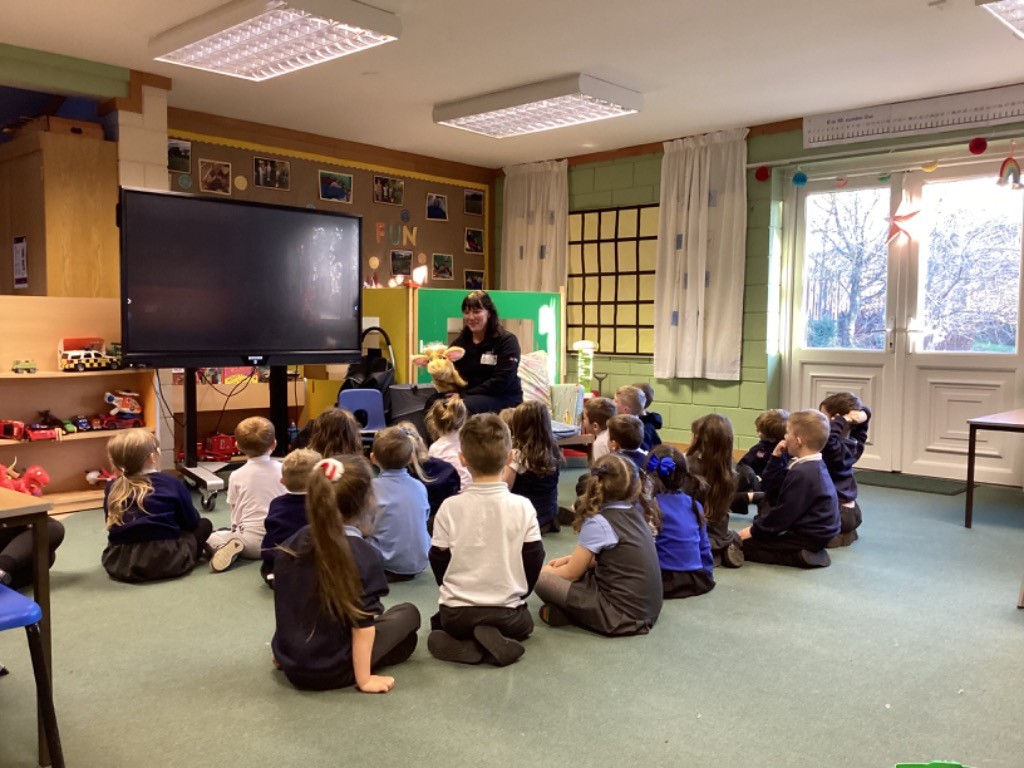
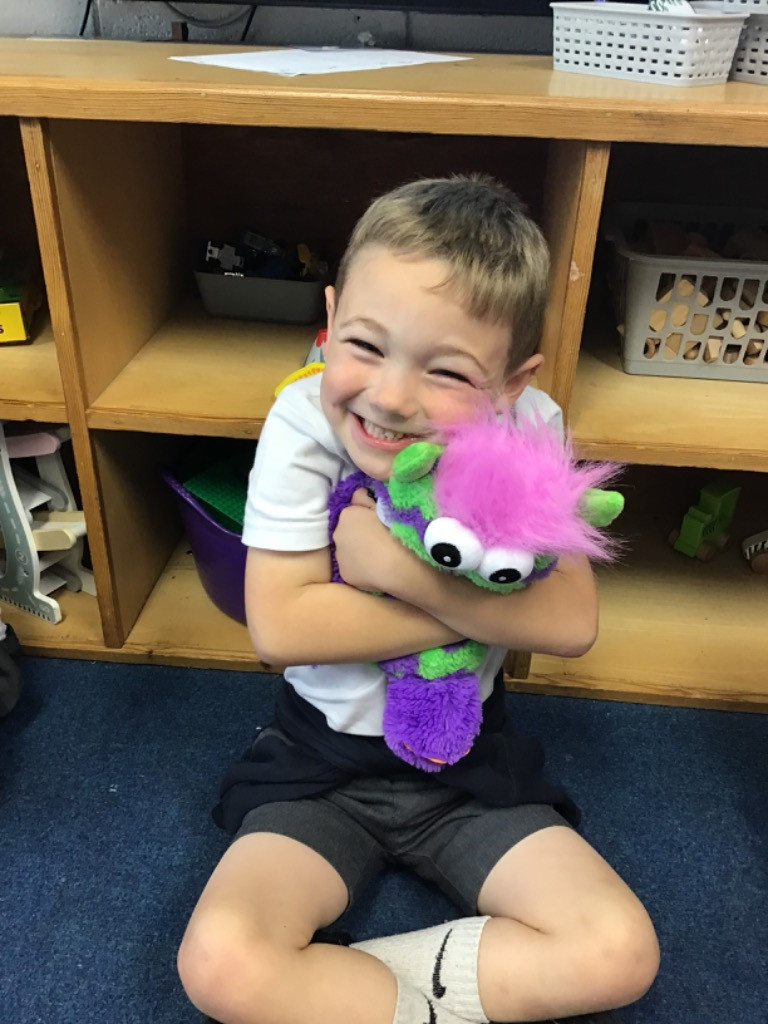
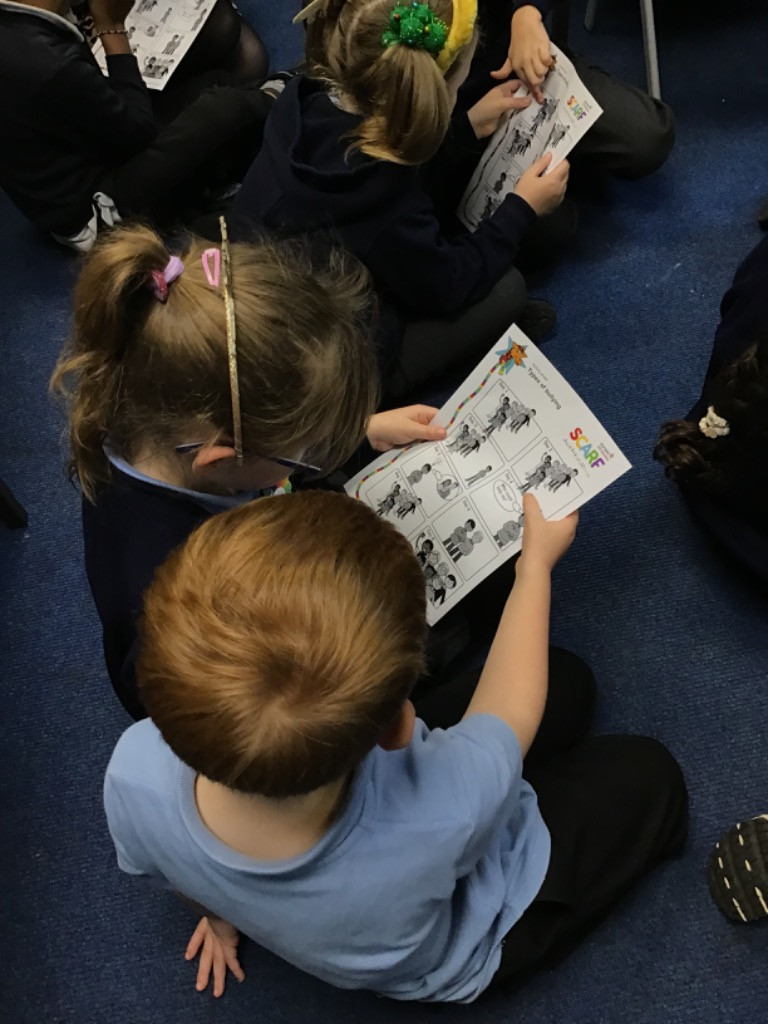
_(1).gif)
